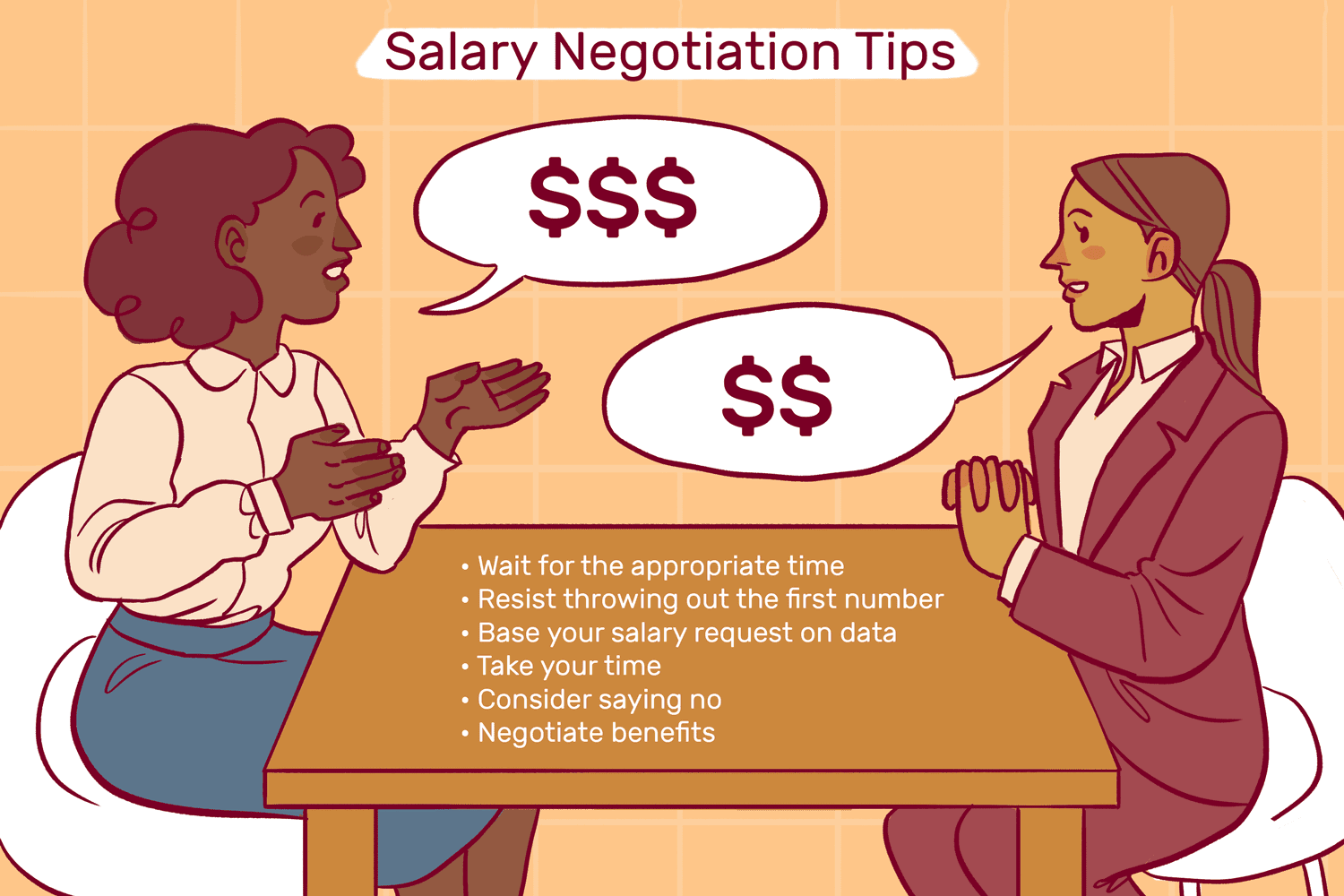How to Negotiate Your Salary 2024, Salary negotiation is a critical skill that can significantly impact your financial well-being and career trajectory. While the prospect of negotiating your pay can be daunting, it’s an essential step in ensuring you receive fair compensation for your skills, experience, and contributions. By approaching salary negotiations with confidence, preparation, and a strategic mindset, you can increase your chances of securing a competitive and satisfying compensation package.
- Research and Know Your Worth Before entering any salary negotiation, it’s crucial to conduct thorough research and understand your market value. Look at salary data for your industry, job role, location, and level of experience. Consult reliable sources such as salary surveys, industry reports, and online salary calculators to get an accurate picture of the typical pay range for your position. This information will provide you with a solid foundation for determining a fair and reasonable salary expectation.
- Consider the Entire Compensation Package While base salary is often the primary focus, it’s essential to consider the entire compensation package when negotiating. This includes benefits such as health insurance, retirement contributions, bonuses, stock options, paid time off, and other perks. Evaluate the value of these additional components and factor them into your overall compensation assessment. In some cases, a lower base salary may be offset by a more comprehensive benefits package.
- Understand the Employer’s Perspective To effectively negotiate your salary, it’s important to understand the employer’s perspective and motivations. Research the company’s financial performance, industry trends, and hiring budgets. This insight can help you tailor your negotiation approach and frame your value proposition in a way that resonates with the employer’s needs and priorities.
- Timing is Everything Timing is crucial when it comes to salary negotiations. The most favorable time to negotiate is typically after you’ve received a job offer but before you’ve accepted it. This gives you leverage and allows you to have an open and honest discussion about compensation. If you’re already employed, consider negotiating during your annual performance review or when you’ve taken on additional responsibilities.
- Practice and Prepare Your Negotiation Strategy Effective negotiation requires preparation and practice. Decide on a specific salary range or target number that you’re comfortable with, based on your research and the value you bring to the role. Anticipate potential objections or counteroffers from the employer and prepare thoughtful responses. Role-play with a trusted friend or mentor to build confidence and refine your negotiation skills.
- Highlight Your Value and Accomplishments During the negotiation process, clearly articulate your value proposition and emphasize your relevant skills, experiences, and accomplishments. Quantify your achievements whenever possible, using metrics or specific examples to demonstrate the tangible impact you’ve made in previous roles. This evidence-based approach will help justify your desired compensation level.
- Listen and Negotiate in Good Faith Salary negotiation is a two-way conversation, not a confrontation. Listen actively to the employer’s perspective and concerns, and be open to compromise. If the initial offer falls short of your expectations, respond professionally and focus on finding a mutually beneficial solution. Avoid making demands or issuing ultimatums, as this can damage the relationship and hinder further negotiations.
- Consider Non-Salary Negotiation Points If the employer is unable to meet your desired salary level, consider negotiating other aspects of the compensation package or job offer. This could include additional vacation time, flexible working arrangements, professional development opportunities, or the potential for future salary reviews or bonuses based on performance.
- Know When to Walk Away While salary negotiation is important, it’s equally crucial to know when to walk away from an offer that doesn’t align with your expectations or long-term career goals. If the employer is unwilling to negotiate or the compensation package falls significantly below market value, it may be best to politely decline the offer and continue your job search.
- Get the Final Offer in Writing Once you’ve reached an agreement on compensation, ensure that all terms and conditions are documented in writing. Review the offer letter carefully to ensure it accurately reflects the negotiated terms, including base salary, benefits, start date, and any other agreed-upon provisions. This written documentation serves as a legally binding contract and protects both parties.
Negotiating your salary can be a challenging and nerve-wracking process, but it’s a crucial step in advocating for your worth and ensuring fair compensation. By conducting thorough research, understanding the employer’s perspective, highlighting your value, and approaching negotiations with professionalism and strategic preparation, you can increase your chances of securing a satisfying and competitive compensation package.
Remember, salary negotiation is a skill that improves with practice and experience. Don’t be discouraged if your initial attempts are met with resistance or rejection. Learn from each negotiation experience, seek feedback, and continue to refine your approach. With time and persistence, you’ll gain confidence and become a skilled negotiator, capable of advocating for the compensation you truly deserve.








